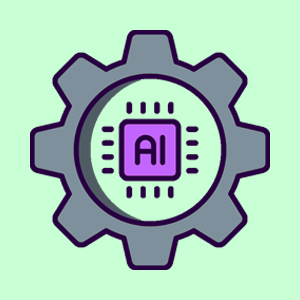 In the ever-evolving landscape of technology, the barrier to entry for creating software has significantly lowered, thanks to the advent of no-code and low-code platforms. These innovative platforms are reshaping the software development industry by enabling individuals without a traditional programming background to design, develop, and deploy applications. At the heart of this transformation is the integration of Artificial Intelligence (AI), which automates complex coding processes, making technology development more accessible and inclusive than ever before.
In the ever-evolving landscape of technology, the barrier to entry for creating software has significantly lowered, thanks to the advent of no-code and low-code platforms. These innovative platforms are reshaping the software development industry by enabling individuals without a traditional programming background to design, develop, and deploy applications. At the heart of this transformation is the integration of Artificial Intelligence (AI), which automates complex coding processes, making technology development more accessible and inclusive than ever before.
Bridging the Gap: The Rise of Visual Programming Interfaces
No-code and low-code platforms are built on the foundation of visual programming interfaces, which use drag-and-drop components, pre-built templates, and graphical user interfaces to simplify the software development process. Users can construct applications by visually assembling blocks that represent different functionalities, all without writing a single line of code. This intuitive approach not only accelerates the development process but also significantly reduces the learning curve associated with traditional programming.
AI further enhances these platforms by automating tasks such as debugging, testing, and even suggesting improvements to the application’s design based on user behavior and feedback. This level of automation not only streamlines development but also ensures a higher quality and more user-friendly end product.
Democratizing Technology Development
The most profound impact of no-code and low-code platforms is their potential to democratize technology development. By lowering technical barriers, these platforms empower a diverse range of individuals, including entrepreneurs, business analysts, and educators, to bring their innovative ideas to life without the need for extensive programming knowledge. This inclusivity fosters a more vibrant ecosystem of applications and services, driving innovation from a broader section of society.
Furthermore, the accessibility of these platforms can lead to more personalized software solutions, as individuals with domain-specific knowledge but limited coding skills can now create applications tailored to their unique needs and contexts. This shift not only diversifies the types of applications being developed but also ensures that technology serves a wider range of purposes and communities.
Coexistence with Traditional Coding Practices
While no-code and low-code platforms offer a promising alternative to traditional software development, they do not signal the end of conventional coding. Instead, they represent a complementary approach that can coexist with traditional practices. For complex, large-scale, and highly customized software projects, traditional coding remains indispensable due to its flexibility and control over every aspect of the development process.
Moreover, as no-code and low-code applications grow in complexity and scale, there will be an increasing need for developers to intervene, either to optimize performance, ensure security, or integrate with other systems. In this sense, these platforms can act as a bridge, introducing more people to the world of software development and potentially inspiring them to deepen their coding skills over time.
The Future of Software Development
As AI technology continues to advance, we can expect no-code and low-code platforms to become even more powerful and intuitive, further blurring the lines between non-developers and developers. This evolution will likely spur further innovation, as more people are equipped to create and contribute to the digital landscape.
However, this future also calls for a balanced approach to technology development, one that values both the democratization brought about by no-code and low-code platforms and the depth and flexibility offered by traditional coding. By fostering a collaborative ecosystem where both approaches thrive, we can ensure that technology development remains inclusive, innovative, and capable of addressing the complex challenges of our time.
In conclusion, no-code and low-code platforms, empowered by AI automation, are not just tools for simplifying software development; they are catalysts for innovation and democratization in the tech industry. As these platforms evolve, they promise to bring us into a new era of technology development, where anyone with an idea can participate in shaping the digital world.
